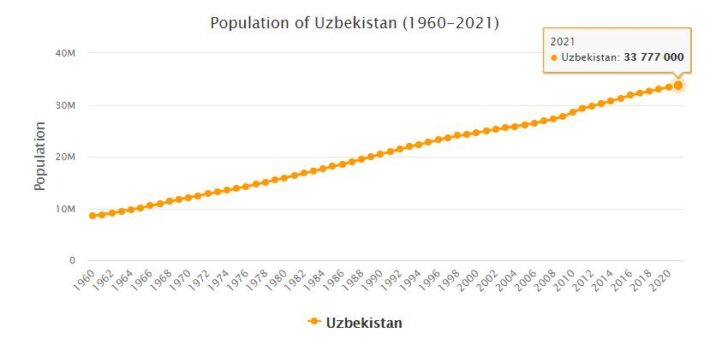Yearbook 2012
Uzbekistan. The conflict over water and energy in Central Asia worsened during the year. A Tajikistani dam builds concern in Uzbekistan, which meant it would stifle water supply to the Uzbek cotton fields. The contradiction led to Uzbekistan temporarily suspending its gas supplies to Tajikistan in April.
When President Islam Karimov’s regime announced the privatization of 500 state-owned companies, outside analysts doubted that any real liberalization of the economy would come about. The regime is known for harassing private entrepreneurs and investors, and much of the country’s wealth is gathered in a circle around the dictator who does not want competitors.
- AbbreviationFinder.org: Provides most commonly used acronyms and abbreviations for Uzbekistan. Also includes location map, major cities, and country overview.
TeliaSonera’s business in Uzbekistan was questioned during the year. SVT’s “Assignment Review” revealed in the spring that the company’s subsidiary gave the security service in Uzbekistan access to its telecommunications system and thus enabled the regime to spy on the mobile users. The deals in dictatorial states such as Uzbekistan proved very profitable for the Swedish telecom company.
Later, “Assignment Review” showed that TeliaSonera in 2007 paid a few billion SEK for a 3G license to a Gibraltar-registered mailbox company with links to President Karimov’s daughter Gulnara Karimova. Bribery was believed to have occurred in the deal, and new purchases must have been made because Karimov’s daughter “needed money”.
In Sweden, an investigation was started by the mailbox company for suspicions of serious bribery and serious money theft. TeliaSonera denied the crime, and it all turned out to be a scam business where the seller may never have a license. The TeliaSonera affair turned out to be one in the line, where the circle of President Karimov’s daughter earned large incomes in dubious settlements with international telecom companies. According to Transparency International’s 2012 index, Uzbekistan was one of the world’s most corrupt countries, only five countries ranked more corrupt.
Uzbekistan decided during the year to leave the Russian-dominated military and security alliance CSTO (Collective Security Treaty Organization). In August, Parliament decided on a new foreign policy strategy, which said no to participation in military alliances and also to US, Russian or other foreign military bases in Uzbekistan.
Child labor and forced labor in the cotton harvest had previously led international clothing companies such as H&M, Adidas and Puma to boycott Uzbek cotton. As a result, Prime Minister Shavkat Mirzijayev issued a ban on schoolchildren ‘s participation in this year’s harvest work. Therefore, more children than usual went to school, while doctors, nurses and officials were ordered to pick cotton during the fall. Those who did not stand were threatened with dismissal from their regular job. At the hospitals, patients complained about the lack of care.
The Uzbek security service was charged with an attempted murder at the beginning of the year at an Uzbek imam in Sweden. The Imam was previously a popular minister in Tashkent, where his regime-critical preaching touched on human rights and forced him to flee the regime. The Russian security service later arrested a man suspected of the murder attempt on the imam, who was shot in the head but survived with severe injuries.
Population 2012
According to countryaah, the population of Uzbekistan in 2012 was 30,929,446, ranking number 42 in the world. The population growth rate was 1.640% yearly, and the population density was 72.7070 people per km2.
